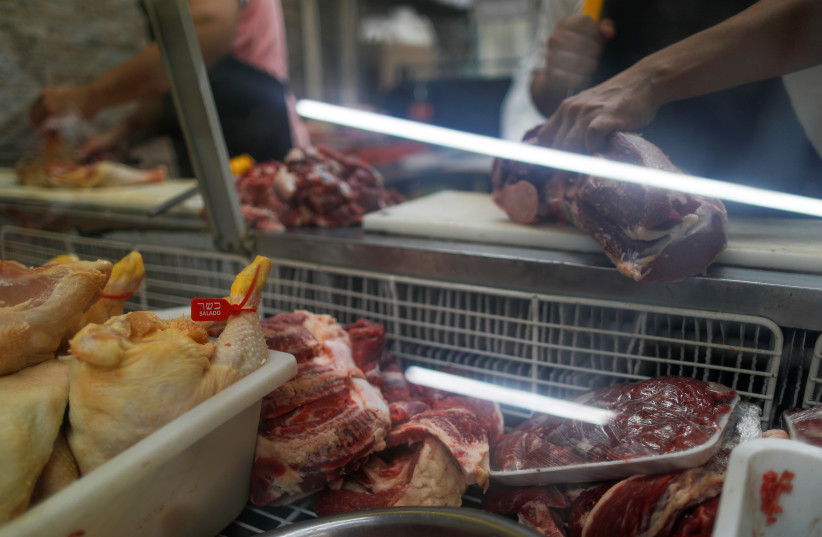Canadian government regulations are endangering the ability of the Jewish community to engage in ritual slaughter for kosher meat, leading kosher certifiers said in a joint letter on Sunday.
The Kashruth Council of Canada (COR), the Jewish Community Council of Montreal (MK), and the Centre for Israel and Jewish Affairs (CIJA) said that they had been unsuccessful in finding a workable solution with the Canadian Food Inspection Agency (CFIA) over June 2023 regulations which had placed "shechita (Jewish ritual slaughter) in jeopardy."
The regulations on kosher and halal slaughter, according to sources familiar with the process, require that a significant number of 18 indicators be met to be certain that the animal is in an irreversible unconscious state in which it experiences no pain.
Attainment of all these indicators creates an additional delay of three minutes. Most slaughterhouses using the captive bolt method can process 60 animals in an hour, but those engaging in shechita under the regulations can only process around 20 animals per hour.
COR, MK, and CIJA respond to the new regulations
"Since these new guidelines have gone into effect, the amount of kosher meat produced in Canada has decreased dramatically," said COR, MK, and CIJA. The community has been trying to temporarily supplement this shortfall with imported kosher meat, but this situation is not viable over the long term."
The kosher certifiers said they had produced several reports demonstrating that shechita results in immediate insensibility and consequent lack of pain. They said CFIA relied on an "inaccurate and flawed, selective literature review."

"Kosher slaughter is humane," they argued. "There is strong evidence supporting this conclusion."
CIJA, MK, and COR said that they were considering legal action if shechita was not recognized as a legitimate method of slaughter, as their religious freedoms and rights were being violated by the regulations. They said a domestic kosher meat supply was necessary for a healthy and thriving Jewish community in the country.
"The Canadian Jewish community is indeed extremely vibrant, and we are determined to preserve its place as one of the leading communities in the Diaspora," said the certifiers.
